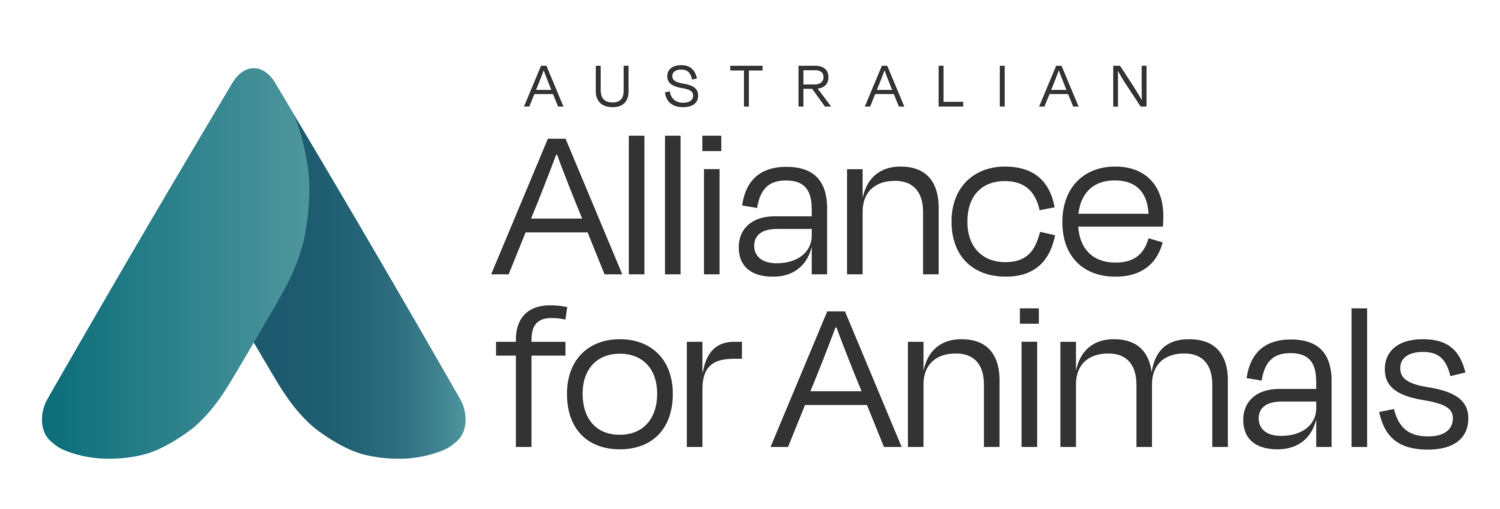Why does the standards development process matter for animal welfare?
In Australia, millions of animals are suffering due to an inconsistent and outdated standards development process. The current process for developing and adopting animal welfare standards is dominated by industry interests, lacks scientific integrity and legislative accountability, and fails to align with the community’s expectations.
Establishing a fair and accountable standards development process is part of the Fair Go for Animals campaign, which aims to build a more robust, evidence-based animal welfare framework.
Australia lacks a formal structure for the standards development process.
The standards development process is inconsistent across states and territories and is undertaken on an ad hoc basis. The process is often driven by industry priorities and results in practices that harm animals, undermining the core purpose of animal welfare legislation.
For animals, this means important decisions about how they are treated are often made without proper consultation with independent experts or the broader community, leaving them vulnerable to poor welfare standards.
Consider the gassing of pigs. Approximately 85% of pigs in Australia are stunned with carbon dioxide (CO2) gas. The industry favours this method because it allows multiple animals to be stunned at once and requires less handling of the pigs – increasing efficiency and productivity. In contrast, scientific evidence and undercover investigations have shown the severe welfare issues, pain and distress gassing causes, and consumers are demanding an end to the cruel practice.
Image: Farm Transparency Project
Standards development should be a fair and transparent process.
Establishing a formalised, consistent approach to standards development will increase transparency, build public trust, and result in better welfare outcomes for animals. The new approach should place as much emphasis on the process for developing standards as it does on the outcome of the standards.
At the heart of this reform is the need for an Animal Welfare Commission that will lead the standards development process, ensuring it is independent, transparent, inclusive, and grounded in scientific evidence.
The formalised national standard-setting framework must include the following key elements:
Independent governance and management: separate from industry and other stakeholder interests.
Balanced and inclusive stakeholder representation: based off robust consultative and deliberative forums.
Evidence based: established through independent scientific literature reviews.
Meaningful public consultation: clear, timely, and engaging processes that accurately capture community views.
Transparency: publish reasons for decisions.
With a fair, transparent and evidence-based standards development process, cruel practices like farming ducks without access to open water would be phased out due to the welfare issues it causes.
Image: (L) Animal Liberation.
The process should be legislated to improve accountability.
Despite the importance of national animal welfare standards for improving the lives of millions of animals, there are no legal requirements for how the standards should be developed. While the standards may be developed nationally, individual state and territory governments are responsible for adopting the standards under law to give them legal effect. State and territory Animal Welfare Acts need to be amended to include criteria for how standards are developed and adopted. The Acts should also include outcomes that standards must meet, including consistency with the duties of care outlined in the Act, and a periodic review period, to ensure standards are regularly updated to reflect the latest scientific knowledge and community expectations. This will ensure legislative accountability in the process for developing the standards and improve the consistency of standards in different contexts.
Do you want fair and accountable standards for animals? Add your voice of support today.
Australia’s animal welfare system is broken, but not beyond repair. Setting a fair and accountable standards development process will create greater certainty and transparency in the decision-making process, leading to more robust, evidence-based standards, and better outcomes for animals.




